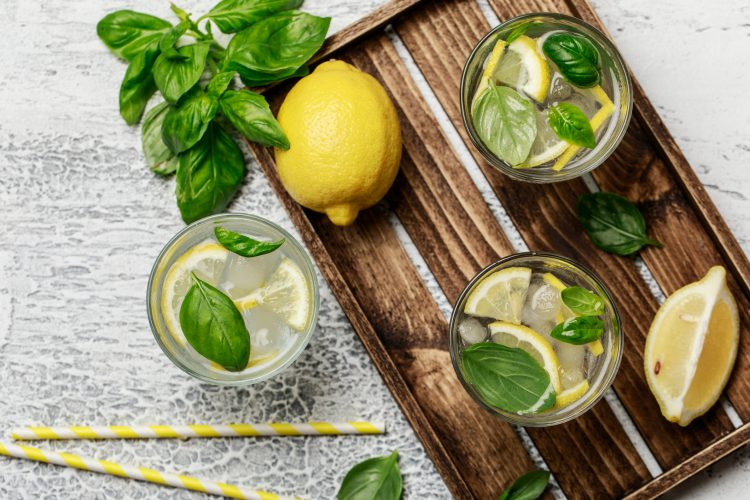If the Sunshine Tour allowed golfers for the first time to wear shorts during a competition, then you must know how serious they are taking their day jobs.

Drinking fluids and supplying your body with fluids is paramount to staying healthy and maintaining the function of every system in your body.
This includes your heart, your brain and your muscles and therefore drinking water should be high on your daily routine because it has such an impact on your functioning.
Your body depends on water to survive. However, this doesn’t mean one template fits all in terms of how much water you should be drinking per day.
Some healthy athletes can stay well hydrated just by drinking a glass of water when they are thirsty while other athletes need more water and a sustained hydration plan to stay hydrated.
This year has seen some record highs and it is important to remember that scheduling routine breaks are paramount to your health.
If the Sunshine Tour allowed golfers for the first time to wear shorts during a competition, then you must know how serious they are taking their day jobs.
The golden rule applies when you neglect your hydration: when you start getting thirsty, it is probably too late already.
That is why no matter how distracted you get, routine scheduled hydration check-ins are necessary.
There are certain signs that your body will give you to show and tell you that fluids are needed due to dehydration.
Warning signs of dehydration
1. General weakness
As soon as our body is dehydrated, we will start to feel weak and “shaky” which is our bodies trying to tell us that our systems are heating up and need to be cooled down.
2. Low blood pressure
When you are dehydrated, your blood volume has dropped and therefore the pressure in your blood vessels decreases, which causes the low blood pressure you are feeling.
3. Dizziness and confusion
Due to the low blood pressure mentioned above, this will also cause less blood to be pumped to the head, which will cause dizziness and confusion as the brain is not able to operate when there isn’t enough blood to keep it operating optimally.
4. Urine colour change
A sure sign of dehydration for the longest time is the change in urine colour when you are dehydrated. The colour of your urine will
darken when the body isn’t hydrated enough letting you know almost immediately that adequate hydration is needed.
One of the biggest complaints from kids or adults regarding water is that they don’t like the taste. Sure, tough love can be enforced but perhaps there is a better way to disguise the taste.
=======
Five healthier recipes to improve the taste of water
Apple & cinnamon
The recipe is easy to use and quick to put together for an even better taste of water, to reach your water intake goals per day. Simply add freshly cut pieces of apple and a cinnamon stick to water for added flavour.
Strawberry & basil
This is your refreshing healthier option for sprucing up the taste of your water. Basil is jam-packed with iron and the strawberries contain vitamin C. Add a few chopped strawberries and a few basil leaves to start off this flavour experience.
Lemon & cucumber
You have probably seen this more famous flavour combination in water, making it a good choice for you too. The cucumber in the water adds to the refreshing taste while the lemon, also contains vitamin C for immune system support.
Strawberry & vanilla
Meet the flavoured water combination with not only hydration benefits but also recovery benefits as the ingredients involved in this drink contain anti-inflammatory properties for reduced inflammation in muscles from exercise or physical activity.
Cucumber & lemongrass
Probably the most exotic tasting flavour combination in the healthier recipes to spruce up the taste of your water. Lemongrass is known for its therapeutic properties and also has very powerful pain relieving properties.
=======
Staying hydrated doesn’t have to be hard, nor does it have to be boring. Hydration, as I am sure you have learnt through this article, is incredibly important for optimal athletic performance.
The American Council of Exercise has stated what the adequate hydration levels are, and how much water should be consumed before, during and after physical activity and the following findings have been released.
For optimal hydration, an athlete needs to consume 500ml of water two hours before exercise, race or competition. When an athlete is competing, it is not always encouraged to have litres and litres of water, as we don’t want to feel sick while we still need to perform.
It is suggested that 300ml of water is to be consumed every 20 to 30 minutes during exercise.
And to ensure we are properly hydrated after our physical activity, we need to consume around 200ml of water no more than 30 minutes after exercise to replace the nutrients and water lost during physical activity.
Sean van Staden is a sport scientist. Follow him on Twitter at @SeanVStaden or visit advancedsp.co.za.
Last week’s column can be found here.
For more sport your way, download The Citizen’s app for iOS and Android.
Support Local Journalism
Add The Citizen as a Preferred Source on Google and follow us on Google News to see more of our trusted reporting in Google News and Top Stories.








